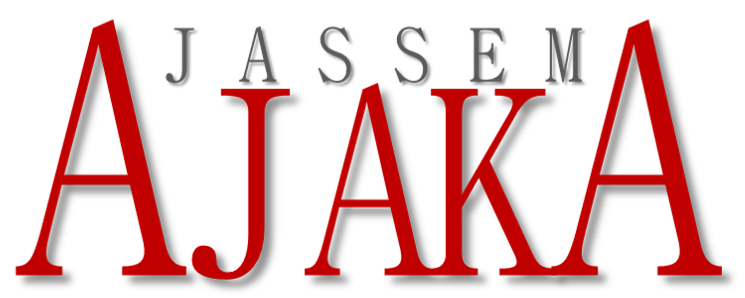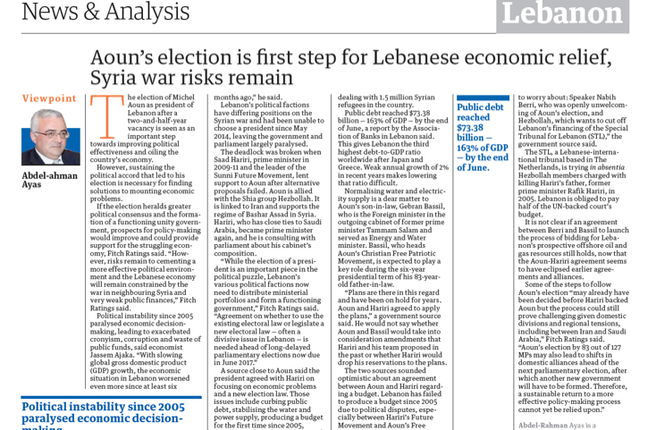jassemajaka@gmail.com
Aoun’s election is first step for Lebanese economic relief, Syria war risks remain
Abdel-Rahman Ayas
The election of Michel Aoun as president of Lebanon after a two-and-half-year vacancy is seen as an important step towards improving political effectiveness and oiling the country’s economy. However, sustaining the political accord that led to his election is necessary for finding solutions to mounting economic problems. If the election heralds greater political consensus and the formation of a functioning unity government, prospects for policy-making would improve and could provide support for the struggling economy, Fitch Ratings said. “However, risks remain to cementing a more effective political environment and the Lebanese economy will remain constrained by the war in neighbouring Syria and very weak public finances,” Fitch Ratings said. Political instability since 2005 paralysed economic decision-making, leading to exacerbated cronyism, corruption and waste of public funds, said economist Jassem Ajaka. “With slowing global gross domestic product (GDP) growth, the economic situation in Lebanon worsened even more since at least six months ago,” he said. Lebanon’s political factions have differing positions on the Syrian war and had been unable to choose a president since May 2014, leaving the government and parliament largely paralysed. The deadlock was broken when Saad Hariri, prime minister in 2009-11 and the leader of the Sunni Future Movement, lent support to Aoun after alternative proposals failed. Aoun is allied with the Shia group Hezbollah. It is linked to Iran and supports the regime of Bashar Assad in Syria. Hariri, who has close ties to Saudi Arabia, became prime minister again, and he is consulting with parliament about his cabinet’s composition. “While the election of a president is an important piece in the political puzzle, Lebanon’s various political factions now need to distribute ministerial portfolios and form a functioning government,” Fitch Ratings said. “Agreement on whether to use the existing electoral law or legislate a new electoral law — often a divisive issue in Lebanon — is needed ahead of long-delayed parliamentary elections now due in June 2017.” A source close to Aoun said the president agreed with Hariri on focusing on economic problems and a new election law. Those issues include curbing public debt, stabilising the water and power supply, producing a budget for the first time since 2005, developing the infrastructure and dealing with 1.5 million Syrian refugees in the country. Public debt reached $73.38 billion — 16



